This article needs additional citations for verification .(March 2015) |
Henry William Portman (1738 - 11 January 1796) was an 18th-century housing developer, the ancestor of the Viscounts Portman.
This article needs additional citations for verification .(March 2015) |
Henry William Portman (1738 - 11 January 1796) was an 18th-century housing developer, the ancestor of the Viscounts Portman.
He was the son and heir of Henry William Berkeley Portman MP (d.1761), by his wife Anne Fitch. His grandfather was William Berkeley (d.1737) of Pylle, Somerset, who had changed his surname, by private Act of Parliament (9 Geo. 2. c. 22), to Portman on becoming heir to his distant cousin Sir William Portman, 6th Baronet (d.1690) of Orchard Portman, Somerset [1] —as well as quartering the Portman arms with his own. He succeeded his father in the estates of Bryanston and Orchard Portman in 1761, and to the Berkeley estates at Pylle on the death of his aunt Lady Burland. He developed 200 acres (0.81 km2) of meadow in London (between Oxford Street and the present site of Regent's Canal) he had inherited from his Tudor ancestor Sir William Portman, turning it into the Portman Estate. He began issuing its first building leases in 1755, and building began in 1764 with Portman Square, which was to owe its popularity to buildings by Robert Adam and James ‘Athenian’ Stuart.
On 20 January 1766, he married Anne Wyndham, daughter of Sir William Wyndham, of Dinton House, Wiltshire, by whom he had two sons and three daughters.
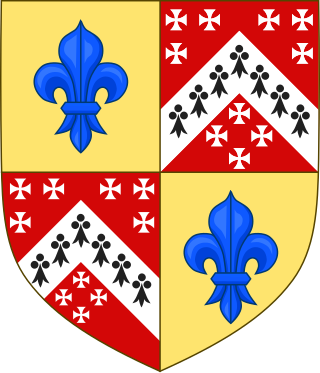
Viscount Portman, in the County of Somerset, is a title in the Peerage of the United Kingdom. It was created on 28 March 1873, for the former Lord Lieutenant of Somerset and Liberal Member of Parliament Edward Portman, 1st Baron Portman. He had already been created Baron Portman, of Orchard Portman, on 27 January 1837, also in the Peerage of the United Kingdom. His son, the second Viscount, represented Shaftesbury and Dorset in the House of Commons as a Liberal. As of 2014, the titles have been held by one of the latter's great-great-grandsons, the tenth Viscount, since 1999.
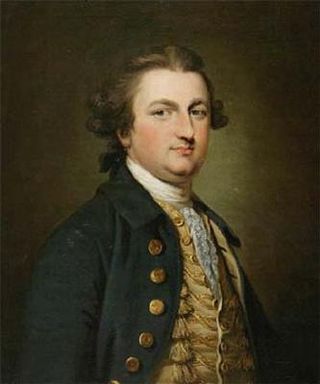
Henry Somerset, 5th Duke of Beaufort was an English courtier and politician. Styled the Marquess of Worcester from 1746, at his father's death on 28 October 1756, he succeeded him as 5th Duke of Beaufort, 7th Marquess of Worcester, 11th Earl of Worcester, and 13th Baron Herbert.
This is an incomplete list of people who have served as Lord Lieutenant of Somerset. Since 1714, all Lord Lieutenants have also been Custos Rotulorum of Somerset.

The Cary family is an English aristocratic family with a branch in Ireland. The earliest known ancestor of the family is Sir Adam de Kari who was living in 1198. Sir John Cary purchased the Manor of Clovelly in the 14th century and established the family's status as members of the landed gentry. Various branches of the family were ennobled in the late 16th and early 17th centuries as Baron Hunsdon and Viscount Falkland.
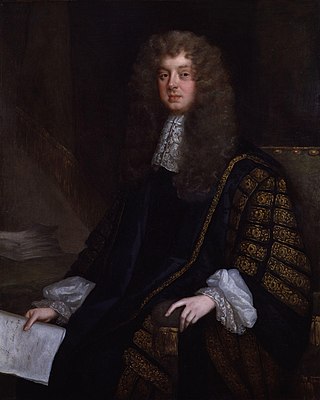
Sir Edward Seymour, 4th Baronet MP was a British nobleman, and a Royalist and Tory politician.
Edward Berkeley Portman, 1st Viscount Portman was a British Whig politician.
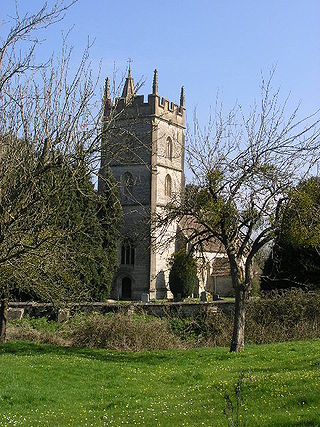
Pylle is a village and civil parish 4 miles (6.4 km) south west of Shepton Mallet, and 7 miles (11.3 km) from Wells, in the Mendip district of Somerset, England. It has a population of 160. The parish includes the hamlet of Street on the Fosse.
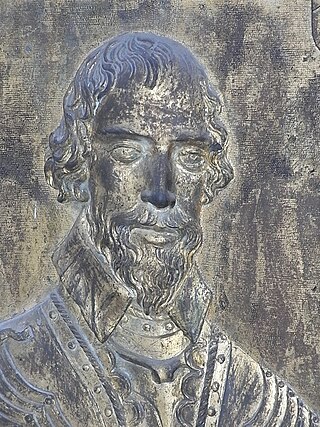
Sir John Wyndham, JP, of Orchard Wyndham in the parish of Watchet in Somerset, was an English landowner who played an important role in the establishment of defence organisation in the West Country against the threat of Spanish invasion.
Sir Hugh Wyndham SL, of Silton, near Gillingham, Dorset, was an English Judge of the Common Pleas and a Baron of the Exchequer.
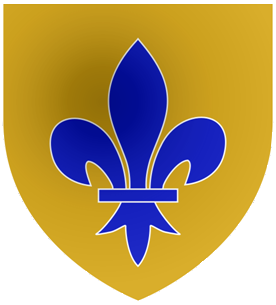
Sir William Portman was an English judge, politician and Chief Justice of the King's Bench. He was MP for Taunton in 1529 and 1536, and an associate of Thomas Cromwell.
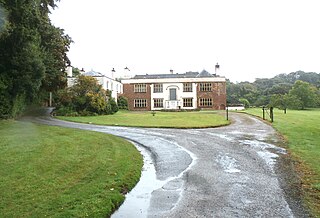
Orchard Wyndham is a historic manor near Williton in Somerset, centred on the synonymous grade I listed manor house of Orchard Wyndham that was situated historically in the parish of Watchet and about two miles south of the parish church of St Decuman's, Watchet. Parts of the manor house are medieval. It has been owned for more than 700 years by the prominent Wyndham family, who continue there as of 2015.
Edward Berkeley Portman of Bryanston House, Bryanston, Dorset was an 18th-century English housing developer and politician.

The Portman baronetcy, of Orchard Portman in the County of Somerset, was a title in the Baronetage of England. It was created on 25 November 1611 for John Portman, son of Sir Henry Portman, knight, of Orchard Portman, Somerset, by Jane Mitchell. Orchard Portman is two miles southeast of Taunton. Sir Henry was the son of Sir William Portman, Lord Chief Justice of England between 1555 and 1557.

Sir William Portman, 6th Baronet FRS was an English politician who sat in the House of Commons between 1661 and 1690.

Robert Knight, 1st Earl of Catherlough, KB,, was a British Member of Parliament for Great Grimsby, Castle Rising, Norfolk (1747–54) and Milborne Port, Somerset (1770–72). He became successively Baron Luxborough (1745), Viscount Barrells and Earl of Catherlough, all titles within the peerage of Ireland. His wife, Henrietta Lady Luxborough, later became well known as a lady of letters, poet and pioneering landscape gardener.

Robert Knight (1768–1855) was an English reforming radical and Member of Parliament.

John Poulett, 4th Earl Poulett, KT, styled Viscount Hinton between 1764 and 1788, was a British peer and militia officer.
The Hon. Bartholemew Bouverie, was a British politician.

Sir William Cary (1437–1471) of Cockington and Clovelly in Devon was a member of the Devonshire gentry. He was beheaded after the defeat of the Lancastrians at the Battle of Tewkesbury in 1471.

Sir John Burland (1724–1776), DCL was an 18th-century lawyer, judge and one of the Barons of the Court of Exchequer.